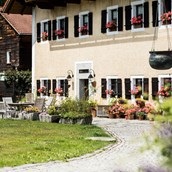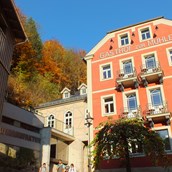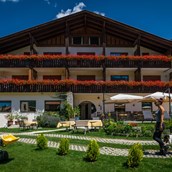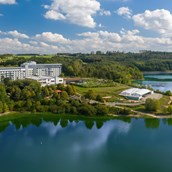Viabono® GmbH developed the CO2 footprint for the hospitality industry and certifies it according to climate efficiency classes A (climate-friendly) to F (climate-damaging). This measures how many CO2 emissions a guest company causes within a year. The resulting emissions from heating consumption, electricity consumption, waste, water, the food sector (regional/organic certified), laundry cleaning and the emissions from employees' arrival and departure are determined. This is done using a CO2 calculator that is validated by the Institute for Energy, Ecology and Economics (DFGE).
The advantages of the CO2 footprint for organic hotels
- Environmentally conscious organic vacationers recognize climate-friendly organic hotels much more easily
- Certified organic hotels set a visible example for environmental protection
- Advantages in marketing, as active climate protection is very effective in the media
- Simple interpretation of the efficiency classes, as they are based on the EU energy efficiency classes
- Manageable survey effort thanks to a practical survey form that is worthwhile
Environmentally and climate-friendly overnight stays
When Viabono classifies an organic hotel in climate efficiency class A or B, companies can offer certified climate-neutral/friendly overnight stays. By limiting it to the two highest efficiency classes, the credibility of the CO2 footprint as a “high-quality” certification is reinforced.









.png)